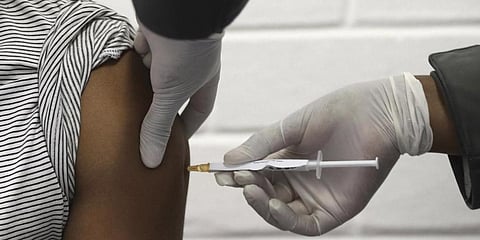

NEW DELHI: Just as the world seemed to be approaching the beginning of the end of the COVID-19 pandemic, a new mutation in SARS CoV 2 detected in the UK has brought more gloom to virus ravaged countries.
The fresh discovery has also given rise to concerns whether the vaccines under development to control the outbreak — some of which have even been rolled out in several countries under emergency use authorisation — will be effective against the strain, which is said to be about 70% more infective than other, more prevalent variants of the virus.
Most experts and scientists point out that viruses change all the time as part of their evolutionary process and these changes take place in order to help them survive. By way of natural selection, most changes die out while a select few help it to propagate.
“The capacity to transmit more efficiently also means that the pathogen’s virulence could go down as viruses would not want to exhaust their hosts in order to survive and thrive,” pointed out K Srinath Reddy, a senior member of India’s National Task Force on Covid-19.
This however also means that as more people get infected, a higher number of people will end up in hospitals and a greater number of lives will be lost.
“Therefore we have to be cautious and vigilant,” he emphasised adding that there is still no clarity on what implications the development may have for vaccines — even though vaccines have been tested for efficacy on a wide range of existing variants.
Other experts said that developing a vaccine against a specific virus is akin to working against a moving target so they are designed keeping in mind the possible mutations that may occur in a pathogen.
“There is so far no evidence that it would affect current vaccines,” said virologist Shahid Jameel adding that the discovery is a reminder to be more vigilant and do proper surveillance after vaccines are rolled out.
“There could be vaccine escape mutant viruses in future. How those mutations will alter virus spread transmission and virulence remains to be seen,” he said.
Senior biologist Seyed Hasnain stressed the need to modify the approach for virus development — for example, also looking to target the epitope of the virus rather than just spike protein that binds itself to the host cell, especially as a possibly dangerous mutation has been recorded in the virus.
He also said that it needs to be probed thoroughly whether the rollout of the COVID-19 vaccine by Pfizer-BioNTech in the UK under temporary licence had any role to play in the mutation that has set off alarm bells ringing globally.
“Sometimes pathogens evolve to escape vaccines and therapeutics developed against them. If this is indeed the case, then it is really a dangerous scenario,” he said.
However, scientific evidence suggests that the mutation that has caused massive worries in the UK now was first detected in the third week of September.
It is also possible that the variant has been detected in the UK first due to its most robust virus surveillance system but may be circulating in other parts of the globe already.